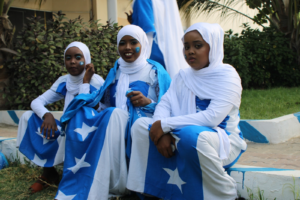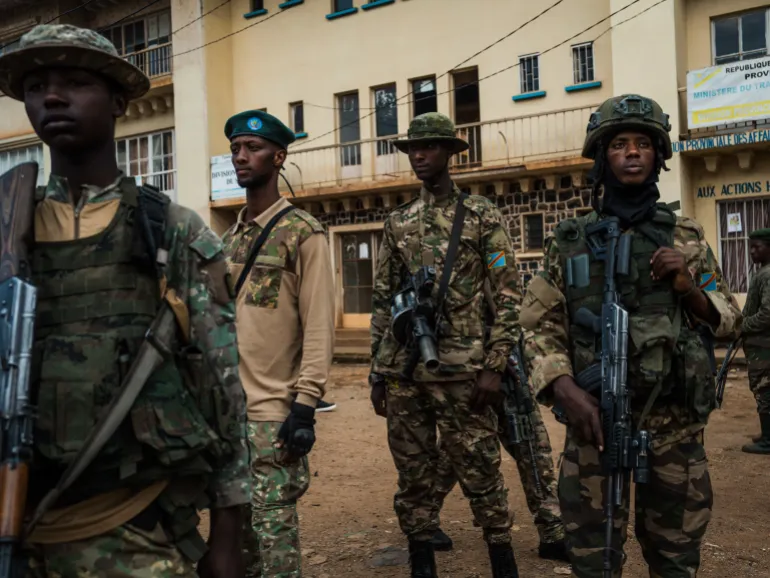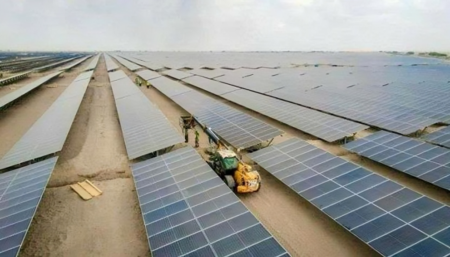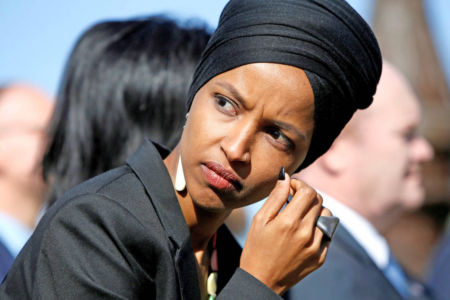The International Committee of the Red Cross (ICRC) has expressed deep concern over the growing number of Africa armed conflicts.
Warning that the continent now accounts for nearly 40% of all active wars worldwide.
Why Are Africa Armed Conflicts “Deeply Alarming”?
Gilles Carbonnier, Vice President of the ICRC, said in an interview with Agence France-Presse on Thursday that Africa is currently witnessing over 50 active armed conflicts.
This increase marks a sharp 45% increase since 2020.
He described the trend as “deeply alarming,” emphasizing that the continent has become the epicenter of global displacement and humanitarian suffering.
According to the ICRC, Africa armed conflicts have displaced around 35 million people across Africa — nearly half of all displaced people globally.
The escalating violence has stretched the capacity of aid organizations to their limits, leaving millions without access to basic needs such as food, water, and healthcare.
Shrinking Humanitarian Funding and Soaring Needs
Despite the scale of suffering, international humanitarian funding is on the decline.
The ICRC, like many global aid agencies, is struggling to sustain its operations.
Due to significant cuts in international aid budgets.
Carbonnier pointed to several key factors behind the drop in funding, including the dismantling of the U.S. Agency for International Development (USAID) programs during Trump administration.
As well as the reduced financial commitments from members of the Organisation for Economic Co-operation and Development (OECD) and the European Union.
Over 14 million Deaths by 2030 in Africa
A recent international study published in July revealed that the reduction in U.S. aid contributions could result in more than 14 million additional deaths by 2030.
Particularly among the world’s most vulnerable populations — with one-third of those deaths expected to be children.
“This funding gap forces us into extremely painful trade-offs,” Carbonnier explained.
“We are having to scale back or even suspend some of our operations in order to prioritize others.
That means some communities will simply not receive the help they desperately need.”
What is the Most Problematic Conflict Among Africa Armed Conflicts?
Among the most pressing humanitarian emergencies is Sudan, where a devastating war has been raging since April 2023 between the Sudanese Armed Forces (SAF) and the Rapid Support Forces (RSF).
The conflict has already killed tens of thousands and displaced more than 12 million people, triggering what the United Nations calls “the world’s worst humanitarian crisis.”
Carbonnier stressed that Sudan’s health system has collapsed, leaving hospitals destroyed, medical staff overwhelmed, and essential supplies nearly impossible to access.
“We are extremely worried about the resurgence of deadly diseases such as cholera and dengue fever,” he warned.
The ICRC continues to call for safe humanitarian access and greater protection for civilians and health workers in Sudan, as violence continues to spread across key cities and border regions.
Renewed Violence in Somalia and the Democratic Republic of Congo
The ICRC Vice President also voiced concern over renewed hostilities in Somalia, where extremist violence and political instability continue to threaten millions.
In the Democratic Republic of Congo (DRC), fighting has intensified since early 2024, particularly in the eastern regions, as the M23 armed group extended its control over major cities including Goma and Bukavu.
This resurgence of violence has forced thousands of families to flee, exacerbating an already dire humanitarian situation marked by food shortages and mass displacement.
A Call for Global Solidarity to End Africa Armed Conflicts
Carbonnier urged the international community not to turn away from Africa’s crises, even amid competing global emergencies.
“The humanitarian needs across the continent are enormous,” he said, “but our ability to respond is being undermined by a serious lack of funding.”
The ICRC emphasized that without a renewed commitment from global donors, millions of lives in Africa will remain at risk.
“This is not just an African problem,” Carbonnier concluded. “It is a global humanitarian emergency that demands collective action, political will, and solidarity.”








